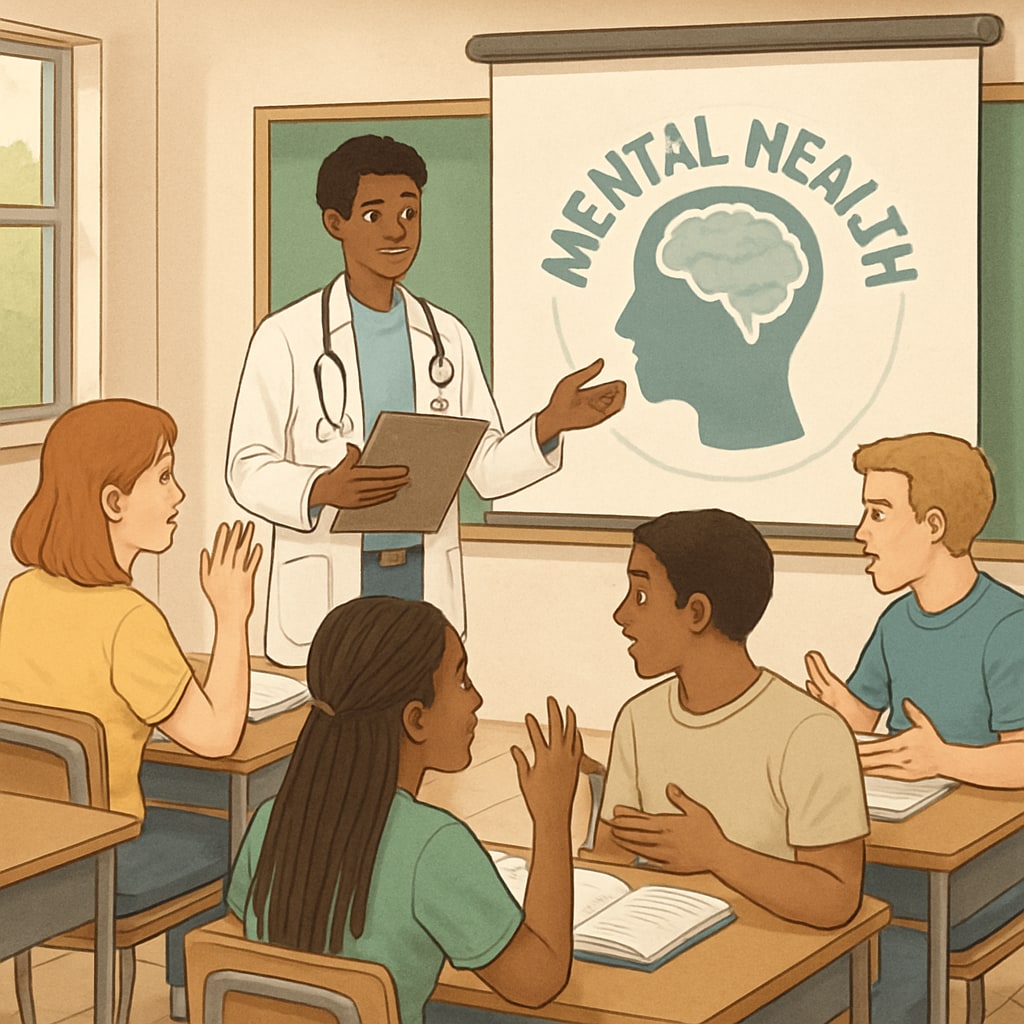Organizing mental health seminars in high schools can be a transformative initiative for medical students. By addressing critical issues like stress management, emotional resilience, and mental well-being, medical students can make a meaningful impact on young lives while honing their own skills as future healthcare professionals. This article provides a comprehensive guide to planning and executing such seminars, from initial school contact to creating engaging content tailored to the needs of high school students.

Building Connections: How to Approach Schools for Mental Health Seminars
The first step in organizing a seminar is establishing contact with schools. Successful engagement requires clear communication and a well-crafted proposal. Schools are often open to collaborations that benefit students, especially those addressing mental health—a growing concern among teenagers.
Here are key tips for reaching out:
- Research schools in your community, focusing on those with a strong interest in student wellness programs.
- Draft a professional email or letter explaining your goals, the seminar’s benefits, and how it aligns with the school’s mission.
- Include credentials, such as your medical background, and any previous experience with public speaking or youth education.
- Offer flexibility in scheduling to accommodate the school’s calendar.
As a result, fostering strong relationships with administrators can pave the way for long-term collaborations.

Designing Content That Engages and Educates
Creating compelling seminar content is crucial for ensuring students remain engaged and leave with actionable insights. High school students often face challenges such as academic pressure, social dynamics, and self-esteem issues. Tailoring the seminar to address these topics will maximize its impact.
Effective content design strategies include:
- Using relatable language and age-appropriate examples to connect with students.
- Incorporating interactive elements such as Q&A sessions, role-playing exercises, or group discussions.
- Leveraging multimedia tools like videos or presentations to make complex concepts accessible.
- Providing takeaway materials, such as pamphlets or resource lists, for ongoing support.
For example, discussing coping mechanisms for stress during exams or strategies to improve self-confidence can resonate deeply with high school audiences.
The Value of Medical Student-Led Initiatives
Psychological well-being is an often-overlooked area in high school education. Medical students bring a unique perspective to the table, combining academic knowledge with empathy and understanding. Their involvement in mental health seminars can:
- Raise awareness about mental health issues and reduce stigma among teenagers.
- Empower students with practical tools for managing their emotions and improving resilience.
- Provide medical students with invaluable experience in community engagement and public health advocacy.
In addition, such initiatives can inspire students to consider careers in healthcare or mental health professions.
However, collaboration and preparation are key to ensuring lasting impact. For more insights on mental health education, explore resources like Mental Health on Wikipedia or Mental Health on Britannica.
In conclusion, organizing mental health seminars in high schools allows medical students to contribute meaningfully to society while gaining professional growth. By focusing on strong school connections, engaging content, and impactful delivery, these seminars can serve as a powerful tool for promoting mental health awareness among young people.


